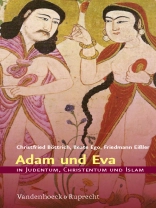The biblical story of paradise sits deeply in the collective memory of the human race – at least within the three large monotheistic religions Judaism, Christianity and Islam – and is today one of best known texts in all of literature. The few terms ‘snake, ‘ ‘sin’ and ‘apple’ suffice to call this story to memory. And many major questions of human life are contained within this tale: How does man treat his environment? What is man’s relationship to other creatures on earth? What is the relationship between males and females? How can we describe the situation of a man and that of a woman? How did death enter the world? There have been interpretations of the story in all three monotheistic religions which were passed down in a multitude of in part very colorful legends. The most importants themes would seem to the origin of evil, the power of sin and the options humans have to free themselves from guilt. Whereas Judaism and Islam emphasize the meaning of divine directives, Paul made the typological correspondence between Adam and Christ the core of his salvation teachings.This, the fourth volume in the series ‘Judaism, Christianity and Islam’ first introduces the biblical story of paradise and then describes clearly and in layman’s terms the various traditions that connect the three major monotheistic religions with the story of Adam and Eve. We come to see them as a part of the common tradition without destroying the boundaries and differences between the three religions.
关于作者
Dr. theol. Christfried Böttrich ist Professor für Neues Testament an der Universität Greifswald.












